When it comes to evaluating tech startup proposals, the landscape can be both exciting and challenging. With countless innovative ideas vying for attention, it's crucial to strike a balance between enthusiasm and discernment. While we appreciate the effort and creativity that goes into every proposal, sometimes the fit just isn't right. If you're interested in understanding more about how we assess these submissions and what it takes to make a proposal stand out, keep reading!

Professional Tone
A proposal for a cutting-edge tech startup, focusing on innovative solutions and market disruption, often faces various evaluations. Unfortunately, the decision-making committee has determined that this specific proposal does not align with the current strategic objectives of our organization. Several factors contribute to this conclusion, including market research indicating limited scalability potential, competitive analysis highlighting strong existing players in the sector, and the projected financial forecasts not meeting our required thresholds for investment viability. We encourage the team to refine their business model and explore alternative approaches before resubmitting in the future. Thank you for your submission and we wish you success in your ongoing endeavors.
Clear Reason for Rejection
A rejection letter for a tech startup proposal should clearly outline the decision while providing constructive feedback on the reasons behind it. The proposal may lack scalability in its business model, indicating insufficient potential for growth in the competitive tech market. Additionally, financial assumptions may not align with industry standards, raising concerns regarding sustainability. The technology presented might not demonstrate a unique value proposition, resulting in challenges against established competitors. Moreover, the team may lack the necessary expertise or experience in executing such a project, limiting investor confidence. Clear communication of these factors ensures transparency in decision-making.
Constructive Feedback
A thorough assessment of the tech startup proposal uncovers several strengths, yet some key areas require enhancement for future consideration. The business plan demonstrates a clear understanding of the target market (specifically millennials and Gen Z) and identifies a gap in the current app landscape. However, the financial projections lack detailed breakdowns, particularly for customer acquisition costs, scaling strategies, and revenue forecasts. Additionally, while the technology framework shows promise, more robust data on user engagement metrics and beta testing results are essential to justify the projected growth rate. Strengthening the marketing strategy to increase visibility within competitive fields like e-commerce or telehealth may also benefit long-term sustainability. Incorporating these improvements may enhance viability for potential investors and ensure greater alignment with market needs.
Appreciation for Effort
A thoughtful rejection letter communicates appreciation for the effort invested in a tech startup proposal while providing constructive feedback and encouragement. Acknowledging the innovative ideas and dedication showcased in the proposal reflects respect for the entrepreneur's hard work. Highlighting specific strengths, such as market research and technical feasibility, can reinforce the positive aspects recognized in the submission. While conveying the decision, it is essential to maintain a supportive tone, leaving the door open for future opportunities or potential collaborations. This approach fosters relationships and encourages entrepreneurs to persevere in their endeavors despite the current outcome.
Encouragement for Future Submissions
A rejection letter template for a tech startup proposal serves as an essential communication tool to convey the decision respectfully. This template typically includes key elements such as personalized salutations, acknowledgment of the startup's innovative ideas, and specific reasons for the proposal's rejection, providing constructive feedback for improvement. Encouragement for future submissions is a vital component, expressing an openness to new ideas and potential collaborations that may arise down the line. Such a letter not only maintains a positive relationship but also empowers entrepreneurs to refine their concepts and seek further opportunities. By emphasizing appreciation for the entrepreneur's efforts, the letter fosters a culture of growth and resilience within the tech startup ecosystem.
Letter Template For Rejection Of Tech Startup Proposal Samples
Letter template of tech startup proposal rejection due to budget constraints.
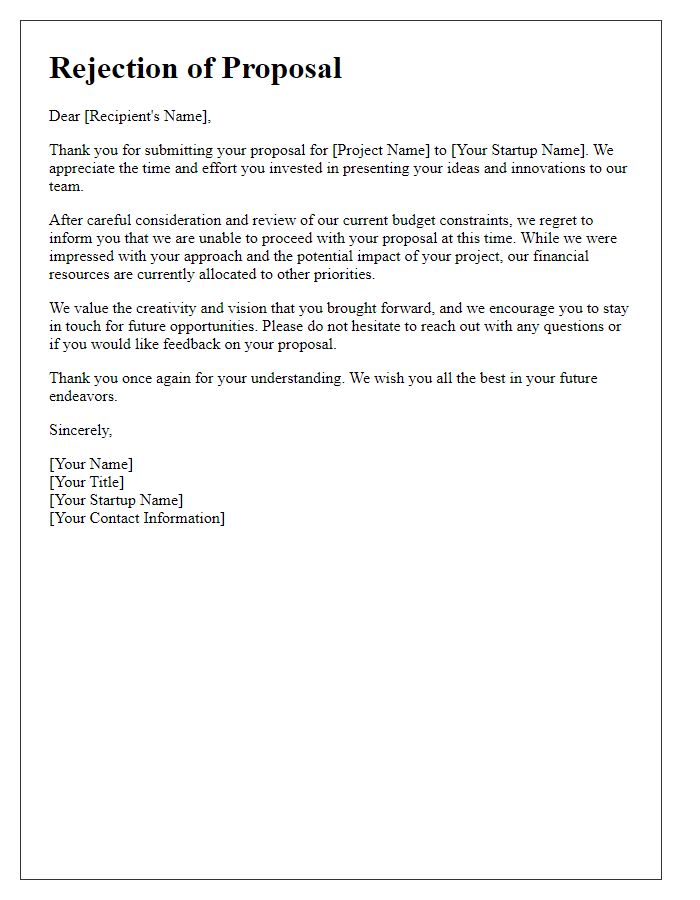
Letter template of tech startup proposal rejection based on market analysis.
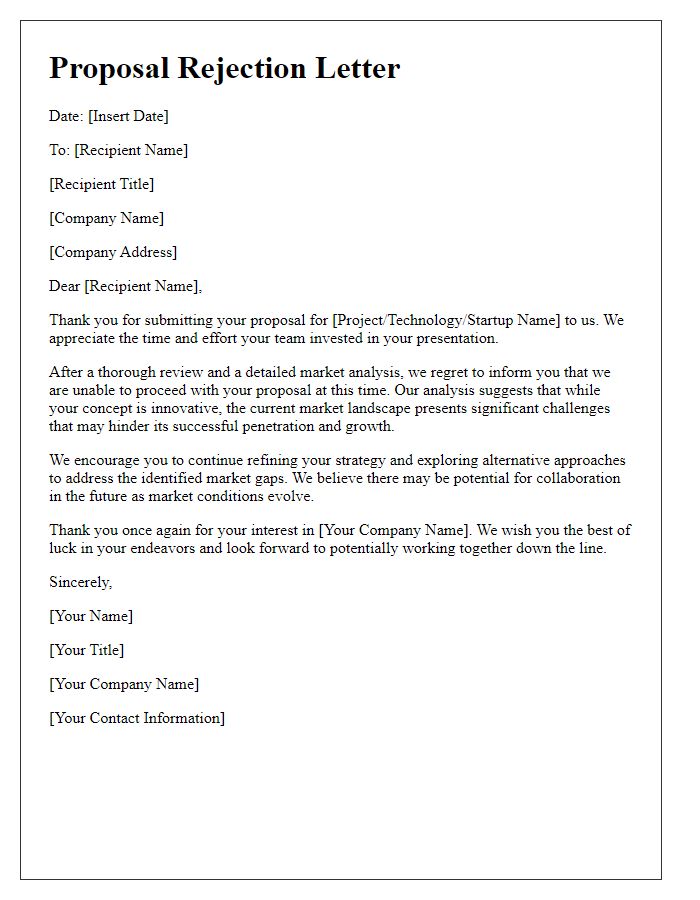
Letter template of tech startup proposal rejection for alignment issues.
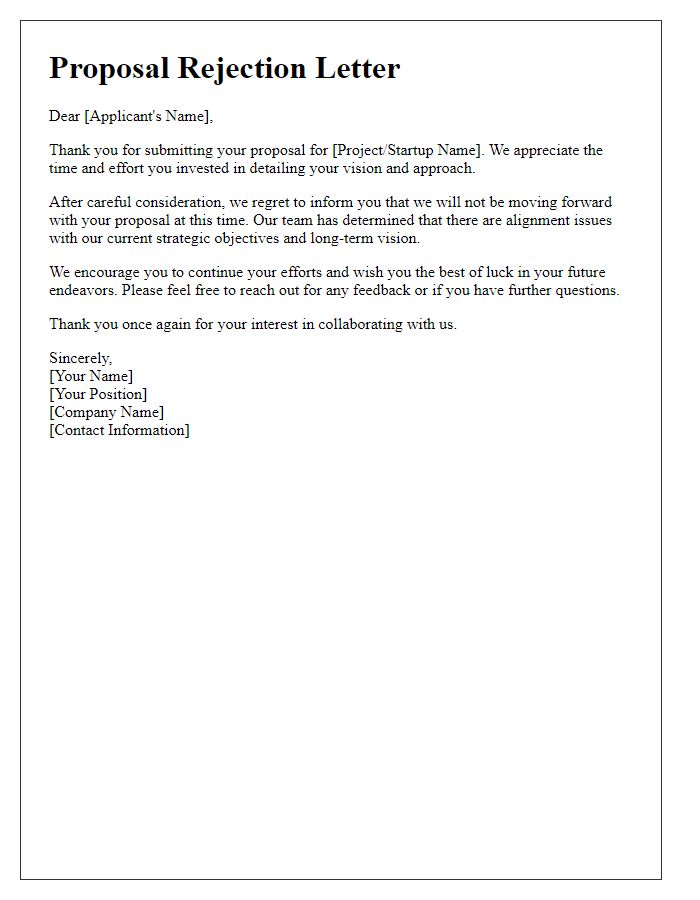
Letter template of tech startup proposal rejection focusing on strategic priorities.
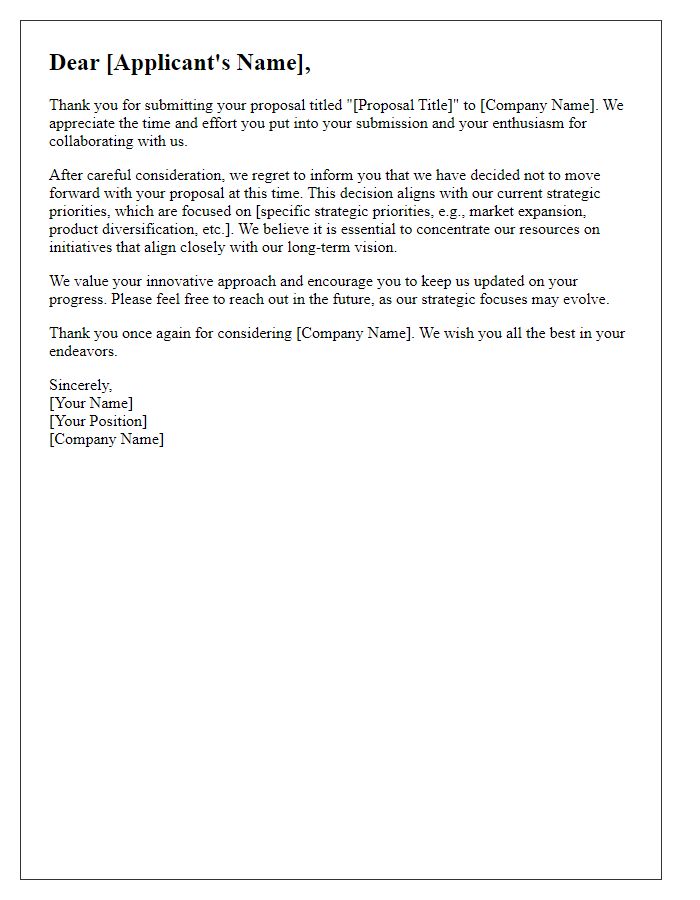
Letter template of tech startup proposal rejection due to resource limitations.
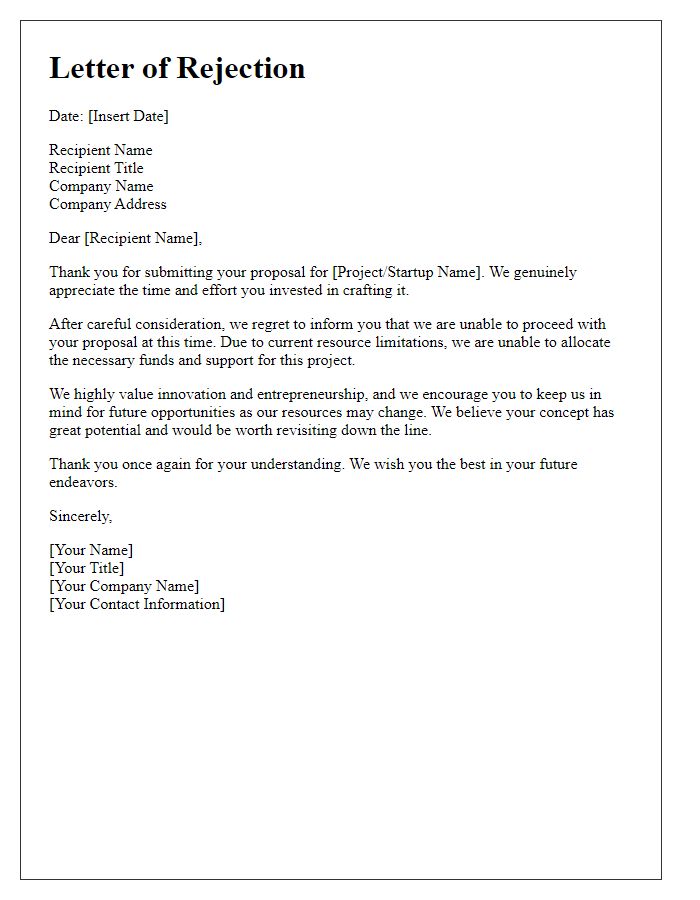
Letter template of tech startup proposal rejection regarding competitive landscape.
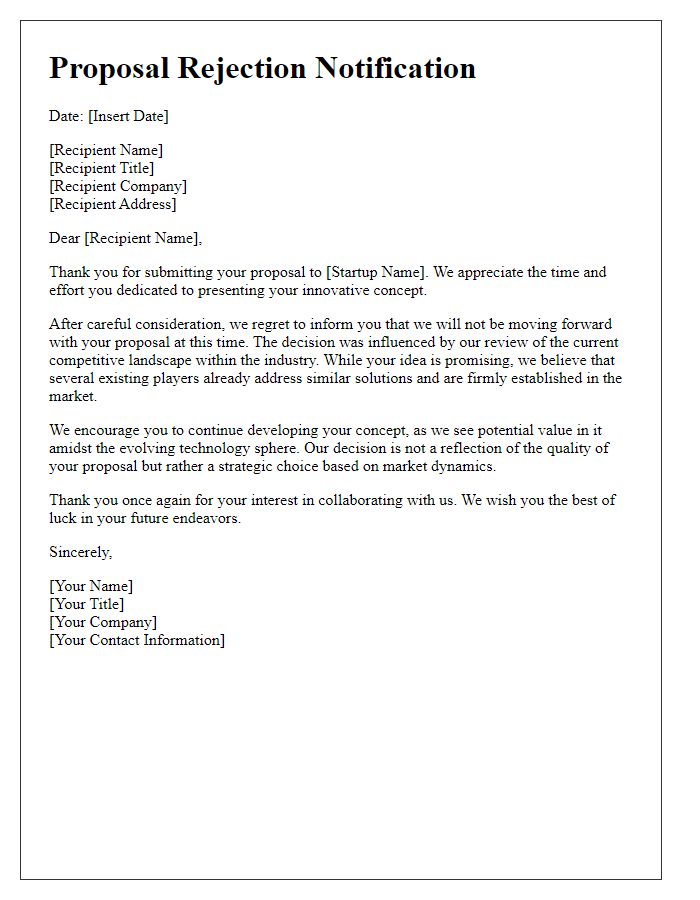
Letter template of tech startup proposal rejection for product feasibility concerns.
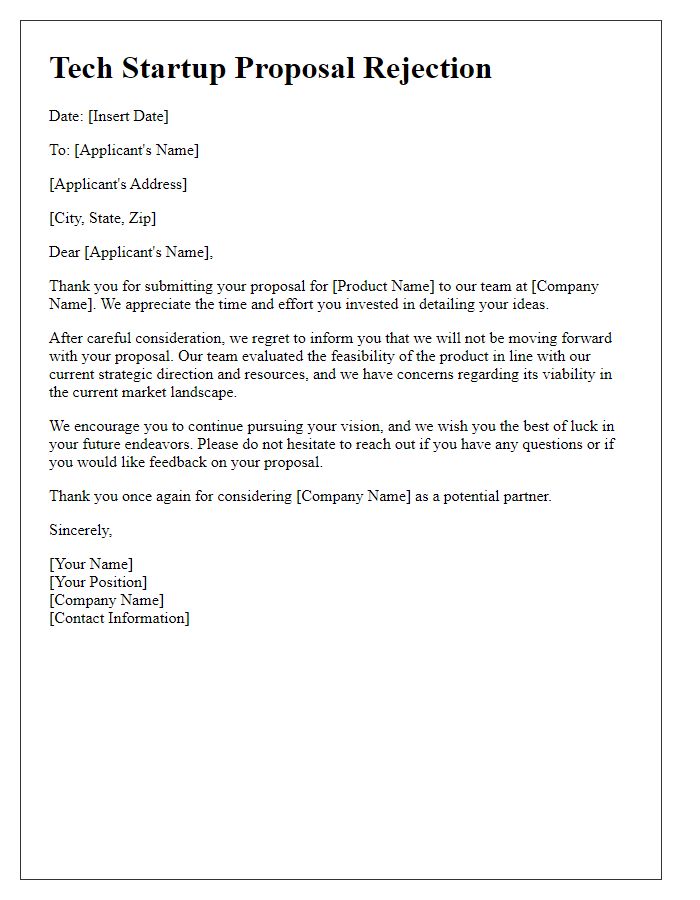
Letter template of tech startup proposal rejection highlighting project fits.
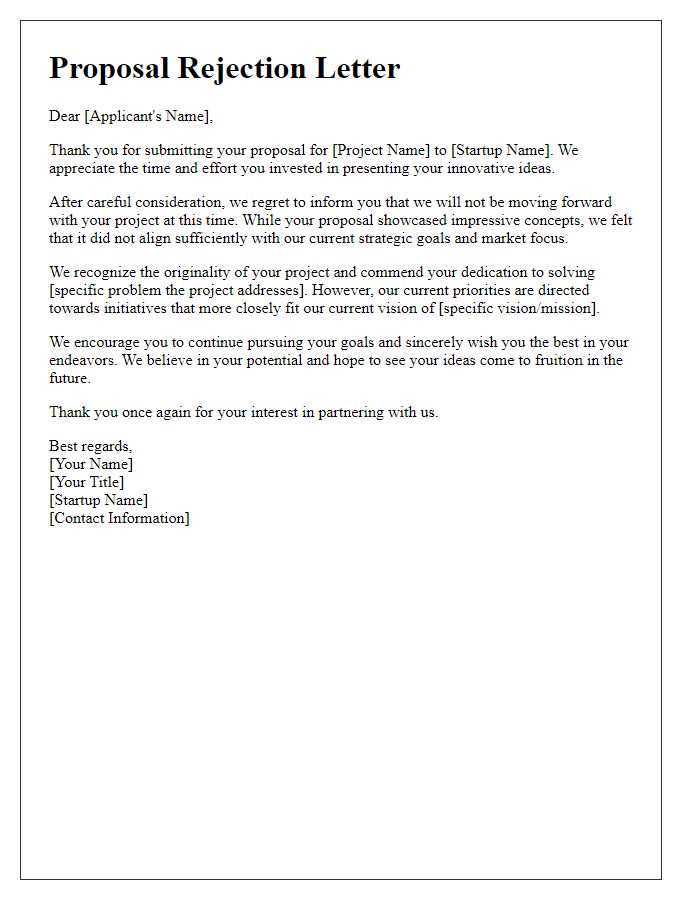

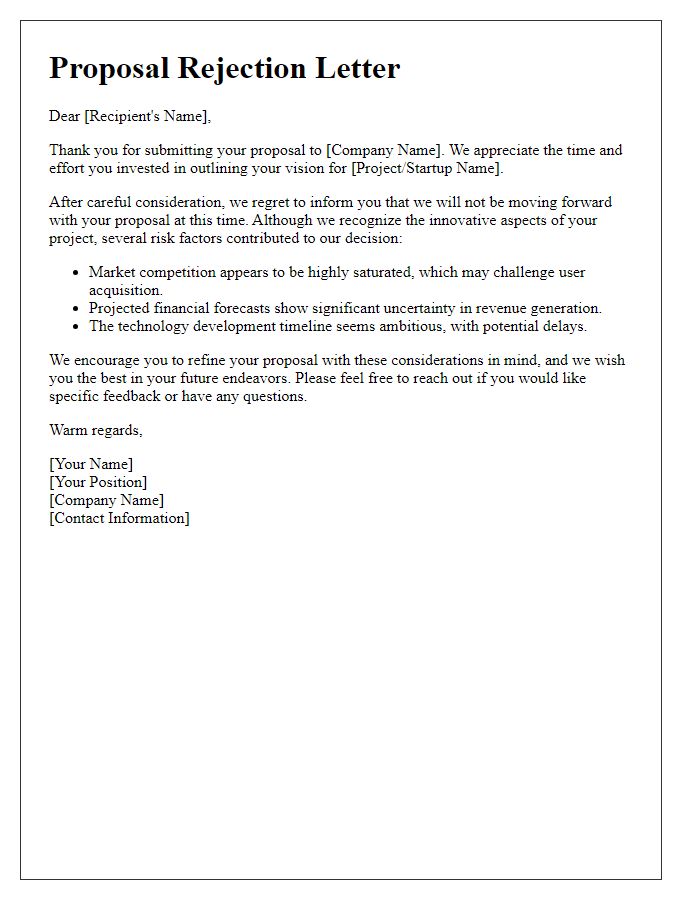
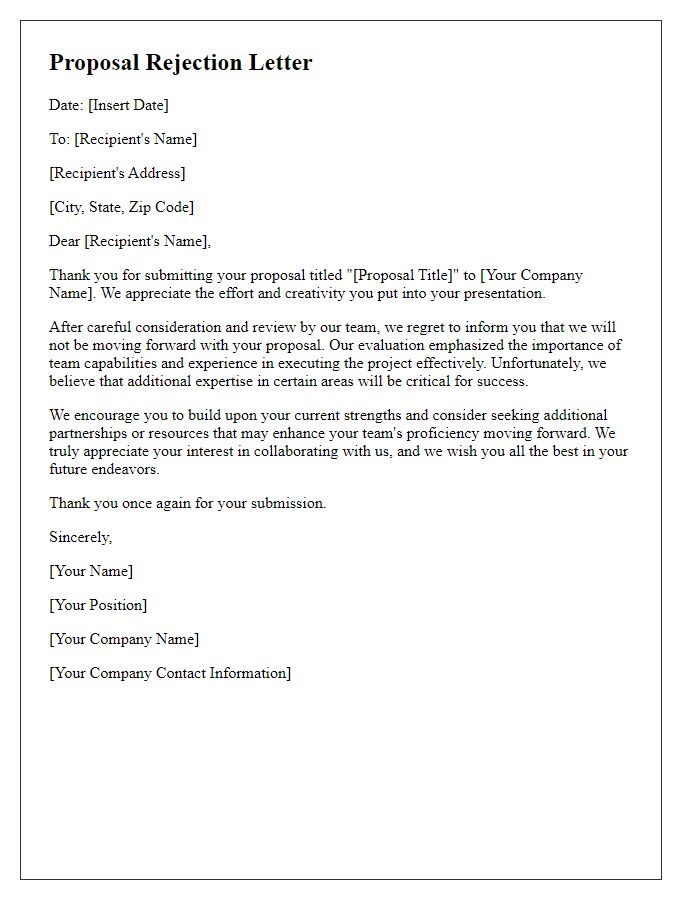

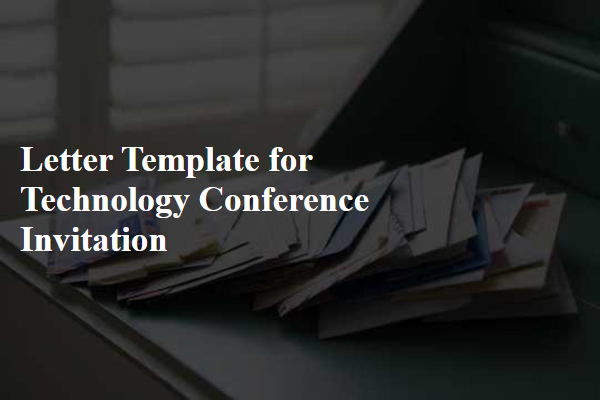
Comments